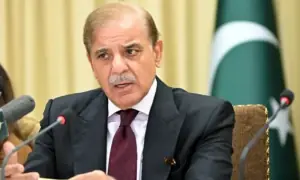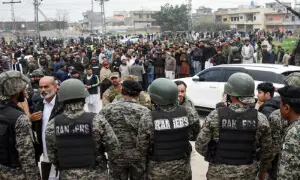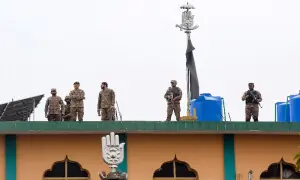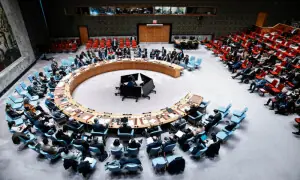India assures Pakistan of visit to its controversial hydropower projects
2 min readThe Indian delegation, which is here for the Permanent Commission on Indus Waters (PCIW) meeting, has assured the Pakistani side of taking their team to a visit to its controversial hydropower projects, Aaj News reported on Wednesday.
A 10-member delegation, headed by the Indian Commissioner for Indus Waters, arrived in Pakistan via the Wagah border on Monday to attend the annual PCIW meeting being organised by the office of Pakistan’s Commissioner for Indus Waters under obligations of the Indus Water Treaty 1960.
The assurance from India came on the second day of the three-day meeting in Islamabad from March 1-3.
The Indian side is headed by Indian Commissioner for Indus Waters Pradeep Kumar Saxena. The Pakistan side is led by the country’s Indus Waters Commissioner Syed Mehr Ali Shah. The team also includes representatives from Wapda, Met Department, Punjab Irrigation, Nespak, the foreign ministry, flood commission and officers of the PCIW.
During the talks on Wednesday, the controversial hydropower projects on Chenab River ‘Kiru’ came under discussion. According to sources, Pakistan asked India about the non-submission of the field data and expressed concerns over the impending loss of lives because of the flood.
According to media reports, Pakistan was expected to raise its concerns over the construction of 10 hydroelectric power projects — Durbuk Shyok, Nimu Chilling, Kiru, Tamasha, Kalaroos-II, Baltikulan Small, Kargil Hunderman, Phagla, Kulan Ramwari and Mandi. Such projects were objections in addition to the ones already under discussion including the 1,000MW Pakal Dul and 48MW Lower Kalnai hydropower projects.
India and Pakistan signed the treaty in 1960 after nine years of negotiations, with World Bank being a signatory. The treaty sets out the mechanism for cooperation and information exchange between the two countries regarding their use of the rivers.
“The focus of the meeting would be to discuss Pakistan’s observations on various Indian New Run-of-River Hydro-Electric Plants. The matter relating to sharing of flood information by the Indian side would also be an agenda item,” read a Foreign Office statement earlier issued.
“The agenda of meetings is as follows: (i) finalization and signing of record of 116th PICM; (ii) discussion on Pakistan’s objections on Tamasha HEP, Kalaroos-Il HEP, Baltikulan Small HEP, Durbuk Shyok HEP, Nimu Chilling HEP, Kiru HEP, Kargil Hunderman HEP, Phagla HEP, Kulan Ramwari HEP and Mandi HEP; (iii) continued discussion on Pakal Dul and Lower Kalnai Hydro-Electric Plants; (iv) arrangement regarding communication of advance information of flood flows during the Flood Season 2022; (v) maintaining free flow of water into river Sutlej; and (vi) programme of future meetings and Tours of Inspection of the PIC,” it added.
For the latest news, follow us on Twitter @Aaj_Urdu. We are also on Facebook, Instagram and YouTube.























Comments are closed on this story.